Marijn Schraagen
Same Author or Just Same Topic? Towards Content-Independent Style Representations
Apr 11, 2022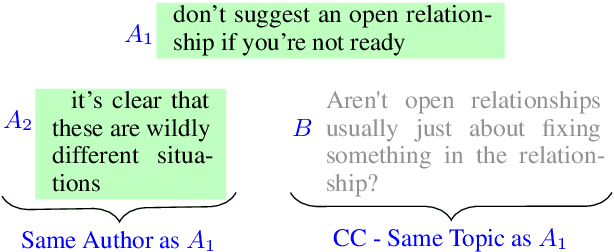

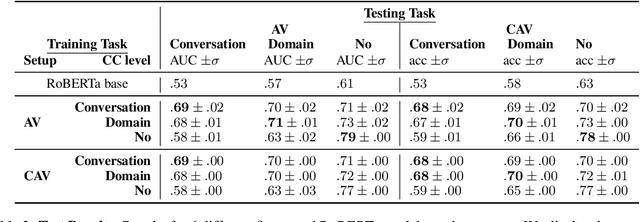
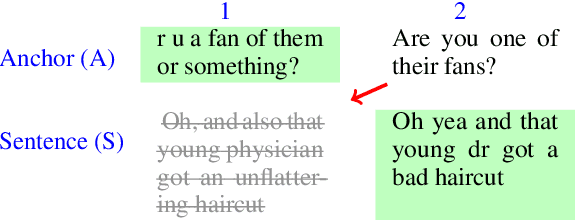
Abstract:Linguistic style is an integral component of language. Recent advances in the development of style representations have increasingly used training objectives from authorship verification (AV): Do two texts have the same author? The assumption underlying the AV training task (same author approximates same writing style) enables self-supervised and, thus, extensive training. However, a good performance on the AV task does not ensure good "general-purpose" style representations. For example, as the same author might typically write about certain topics, representations trained on AV might also encode content information instead of style alone. We introduce a variation of the AV training task that controls for content using conversation or domain labels. We evaluate whether known style dimensions are represented and preferred over content information through an original variation to the recently proposed STEL framework. We find that representations trained by controlling for conversation are better than representations trained with domain or no content control at representing style independent from content.
Dutch General Public Reaction on Governmental COVID-19 Measures and Announcements in Twitter Data
Jun 12, 2020
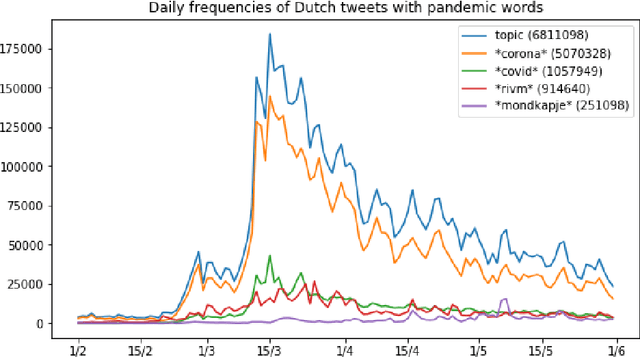
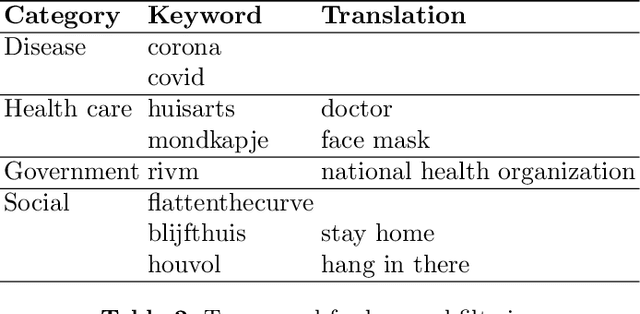
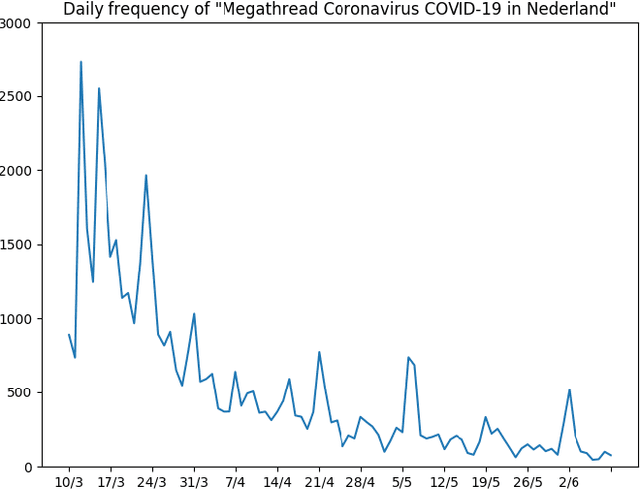
Abstract:Public sentiment (the opinion, attitude or feeling that the public expresses) is a factor of interest for government, as it directly influences the implementation of policies. Given the unprecedented nature of the COVID-19 crisis, having an up-to-date representation of public sentiment on governmental measures and announcements is crucial. While the staying-at-home policy makes face-to-face interactions and interviews challenging, analysing real-time Twitter data that reflects public opinion toward policy measures is a cost-effective way to access public sentiment. In this paper, we collect streaming data using the Twitter API starting from the COVID-19 outbreak in the Netherlands in February 2020, and track Dutch general public reactions on governmental measures and announcements. We provide temporal analysis of tweet frequency and public sentiment over the past four months. We also identify public attitudes towards the Dutch policy on wearing face masks in a case study. By presenting those preliminary results, we aim to provide visibility into the social media discussions around COVID-19 to the general public, scientists and policy makers. The data collection and analysis will be updated and expanded over time.
 Add to Chrome
Add to Chrome Add to Firefox
Add to Firefox Add to Edge
Add to Edge